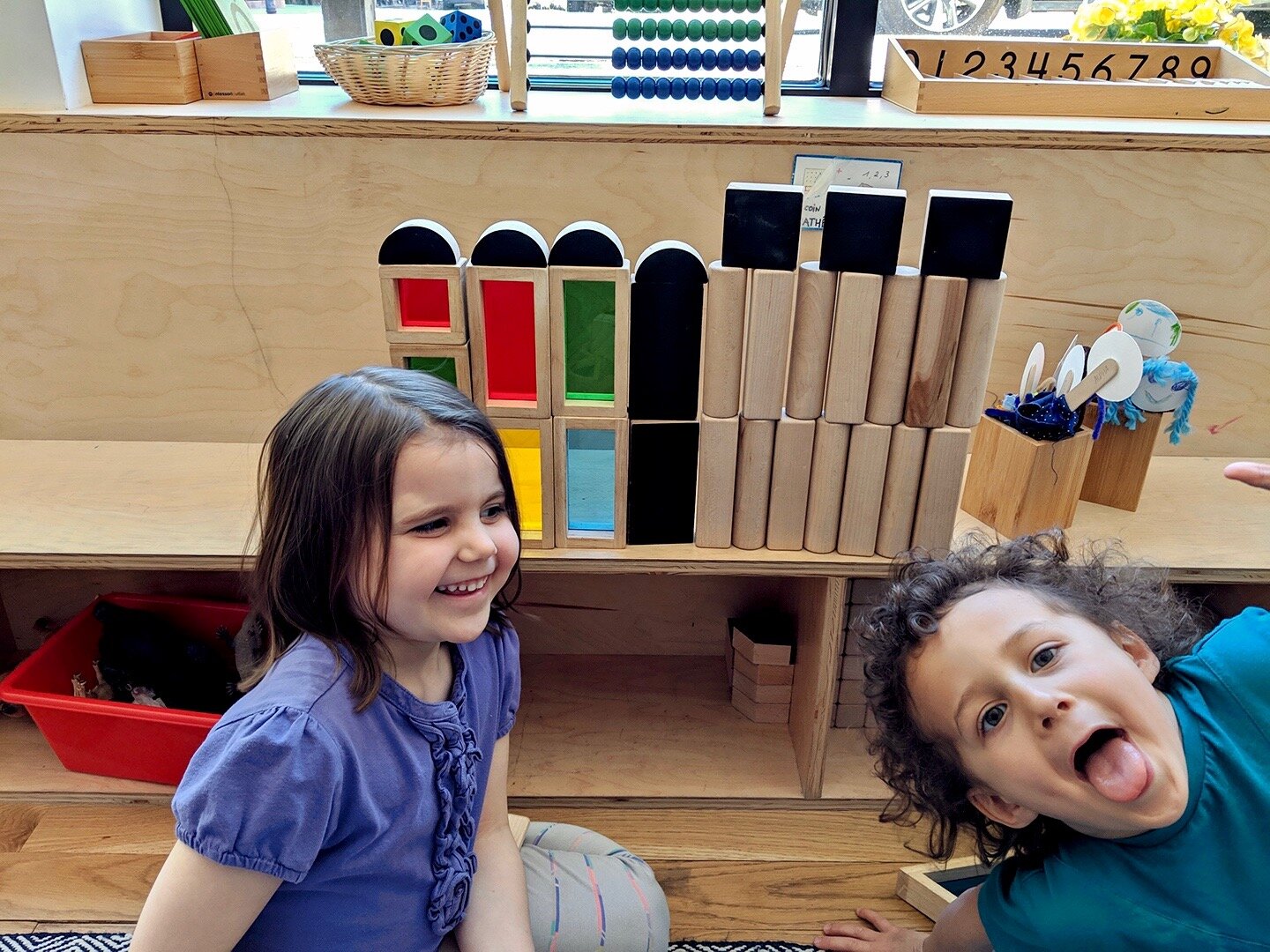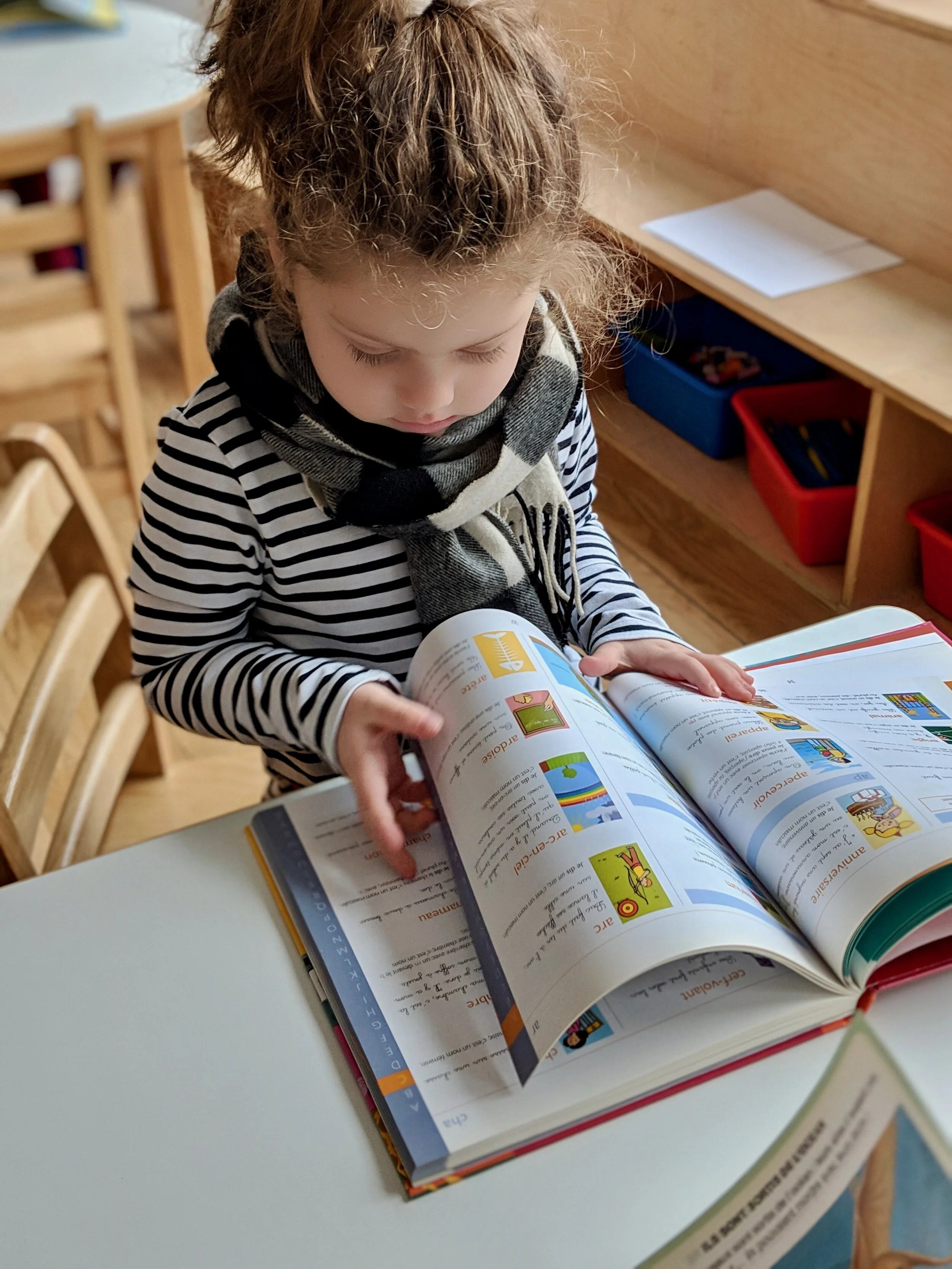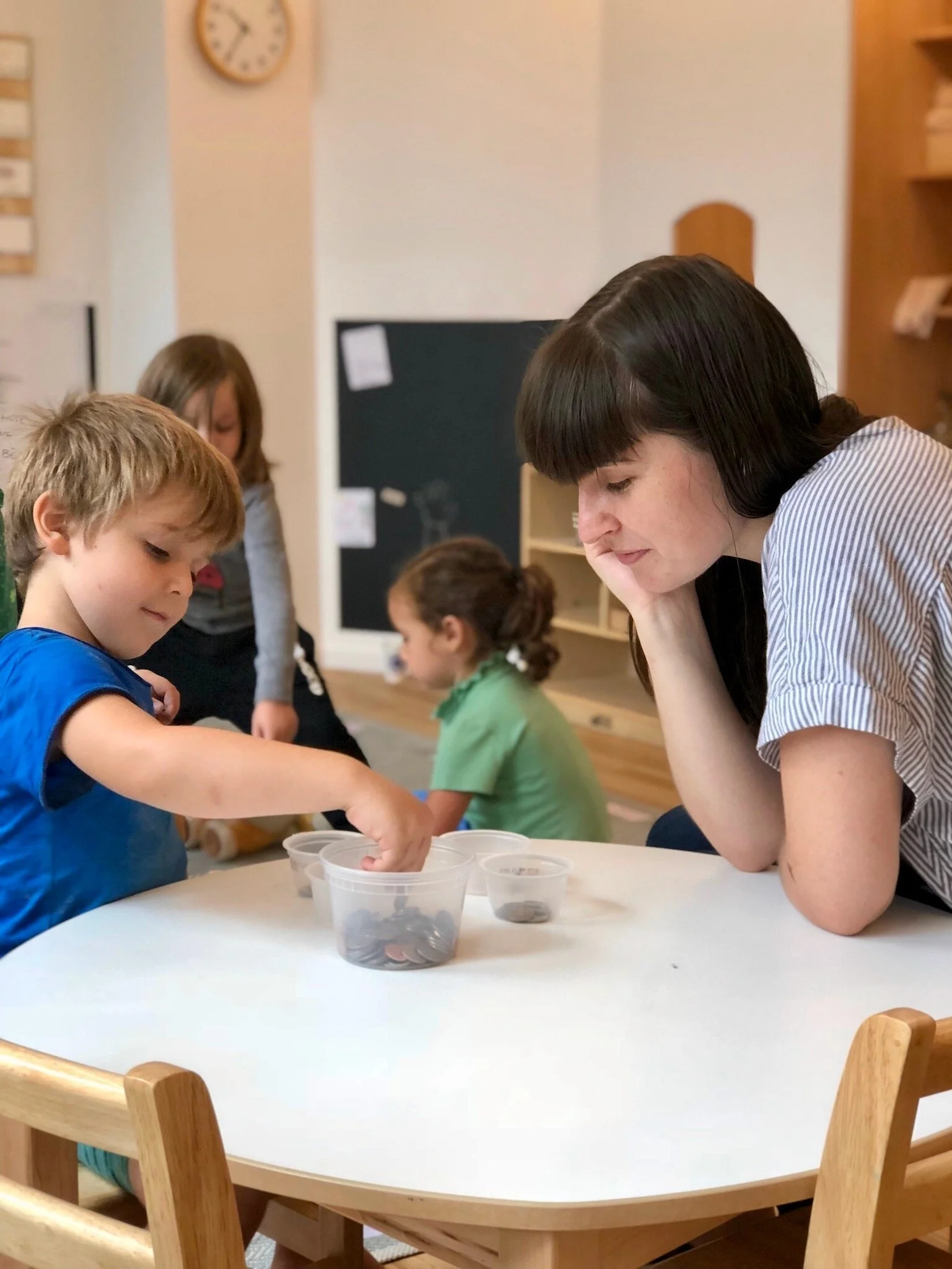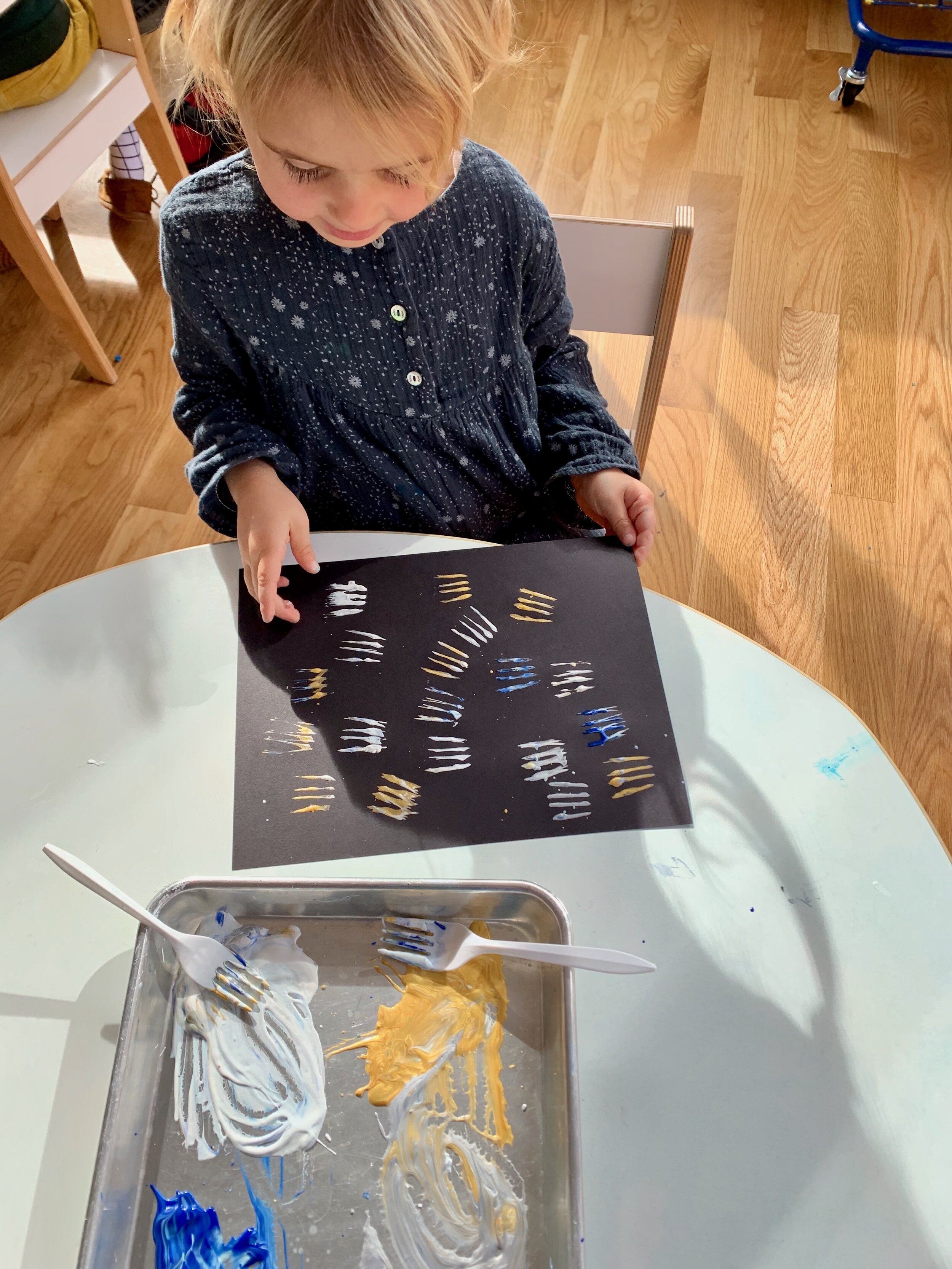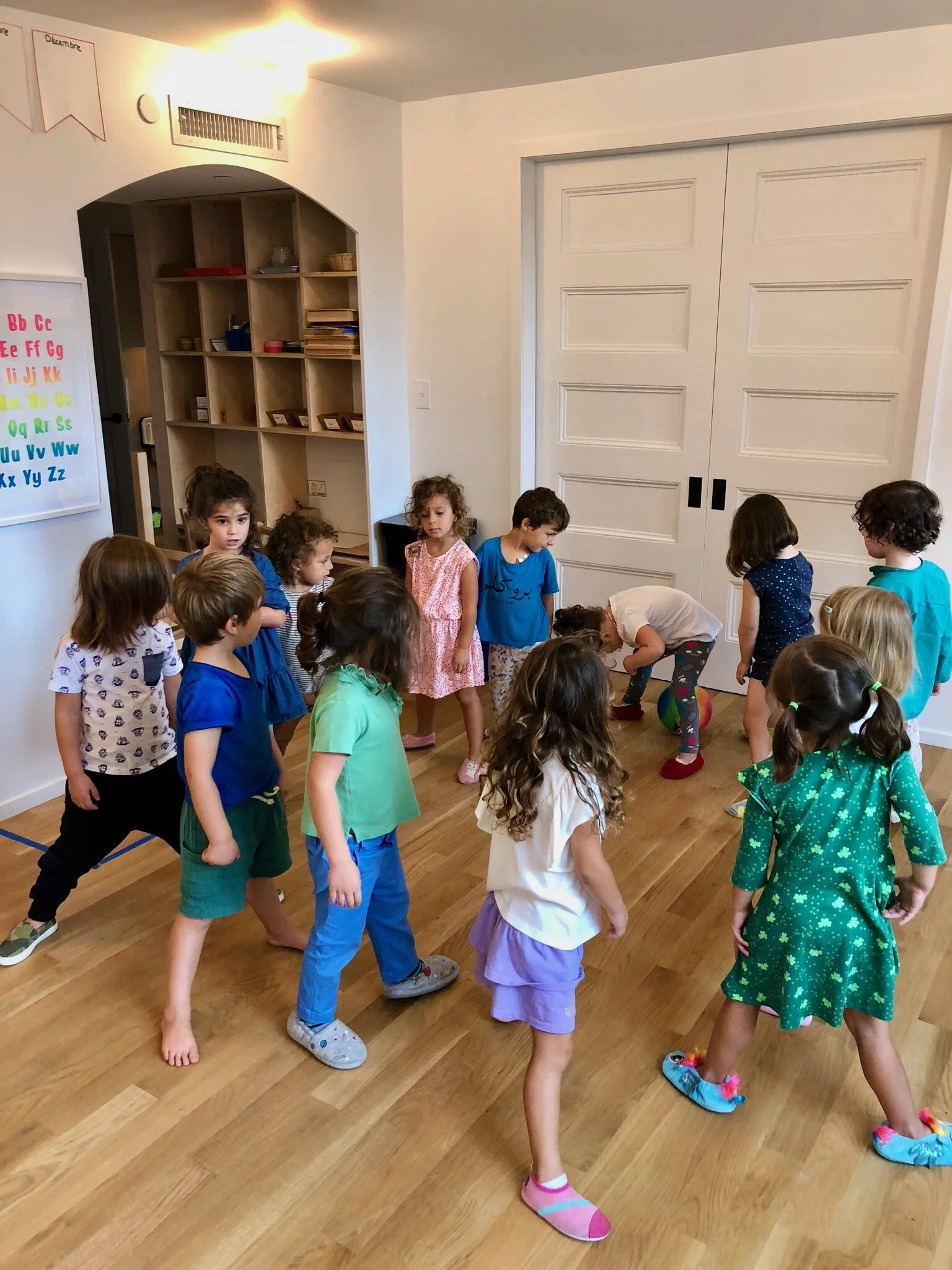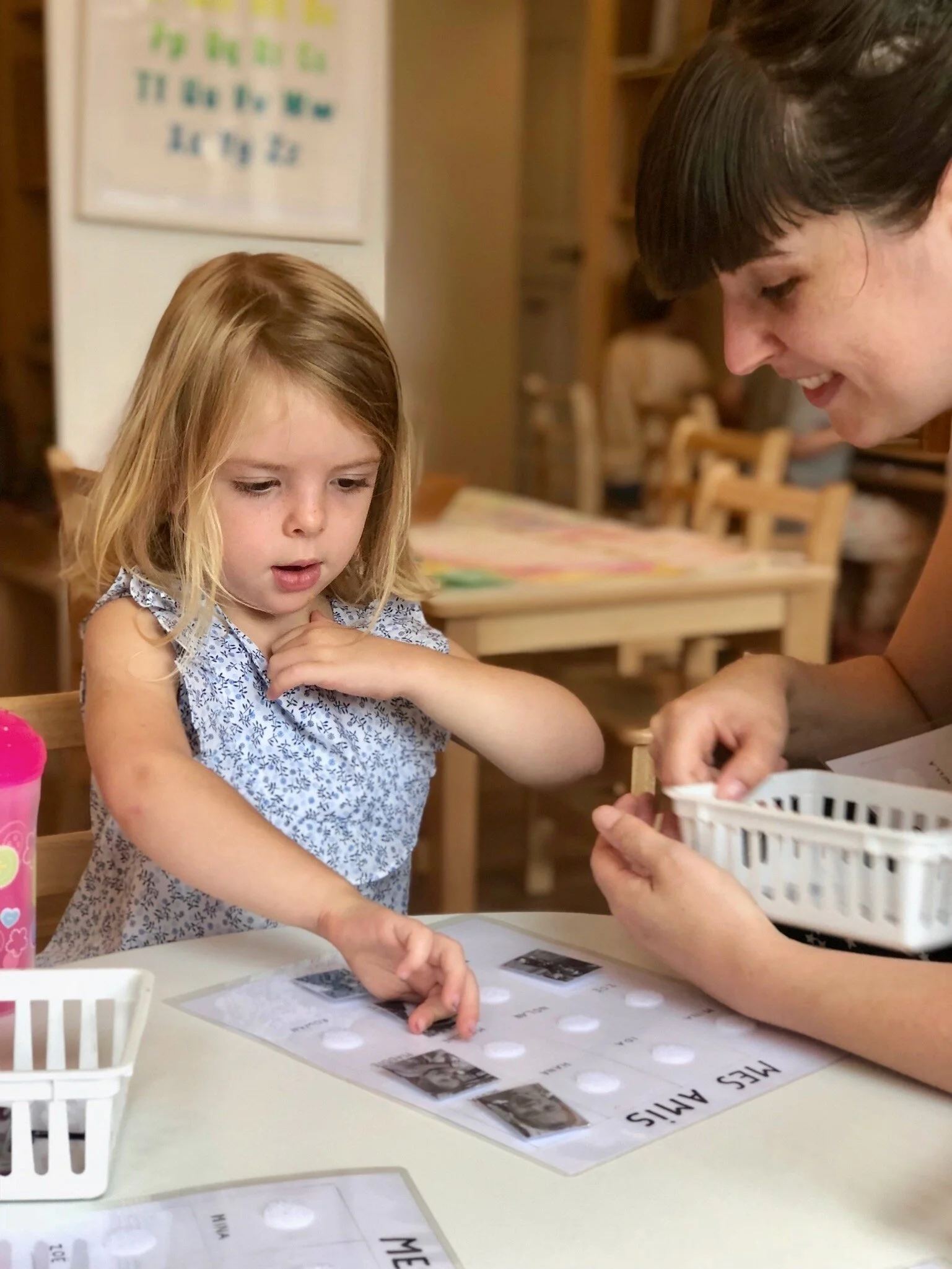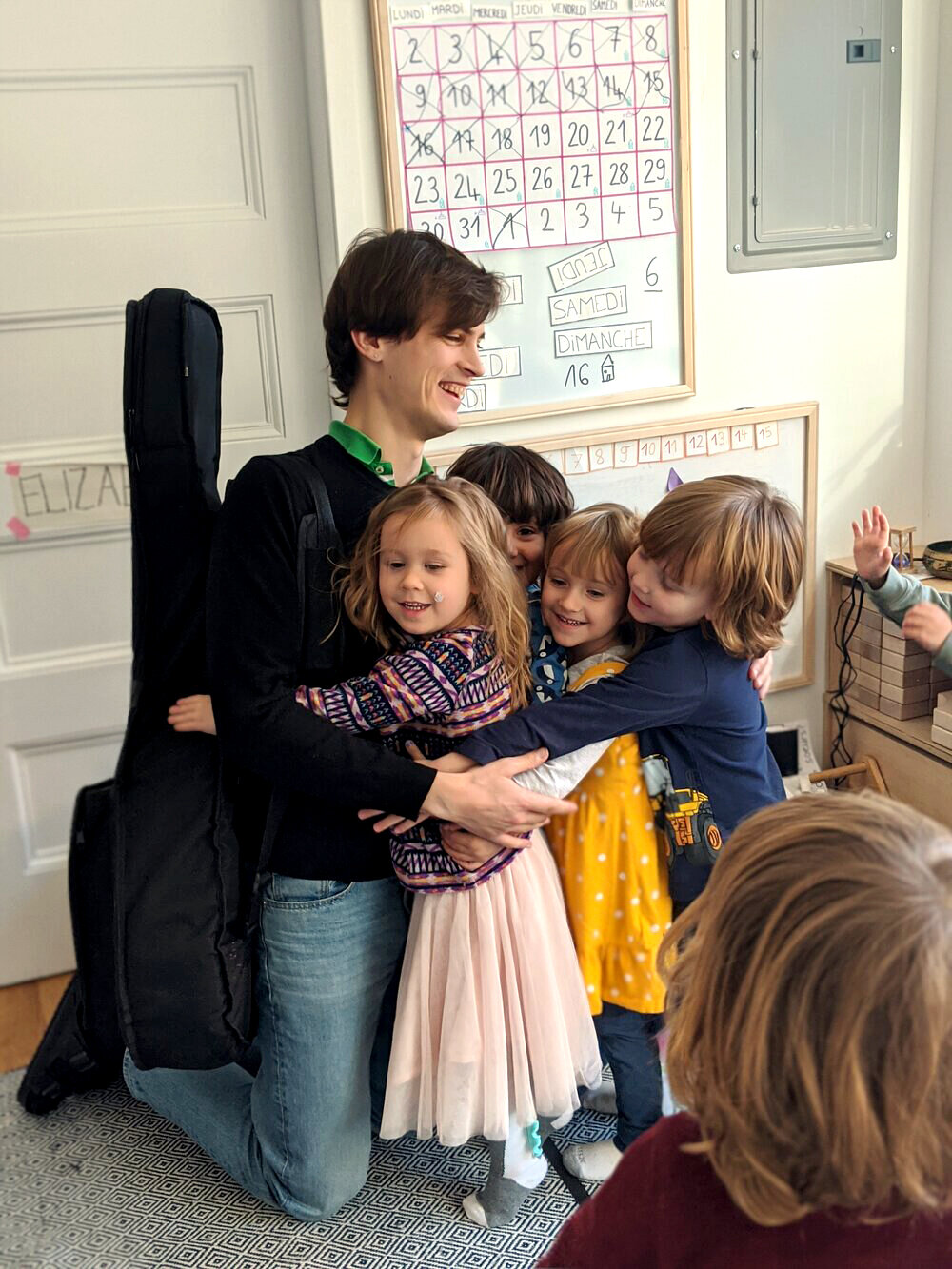Our Educational Philosophy
New York is a wonderful place to grow up, but in a busy urban environment it is a balancing act to give children a carefree childhood. We’ve done our very best to develop a program which promotes three essential aspects of children’s early development:
1. Playfulness
2. Language Development (Expressive and Receptive)
3. Self-awareness & Sense of Self
Playfulness
Different types of play support all levels of learning while encouraging self control and language development as well. Play has enormous benefits in terms of socialization. Children practice what they know, recreate the world around them, and actively problem-solve through play.
In the classroom, we encourage:
1. Physical play
2. Games with rules
3. Symbolic play
4. Play with objects
5. Dramatic play
Language Development
Early development of receptive and expressive language skills has a huge impact on long-term learning outcomes. In providing a very language-rich environment (books, storytelling, songs, rhymes, word-plays), our teachers are constantly enriching and expanding French vocabulary. We consistently encourage young children to articulate their thoughts and ideas with precise vocabulary, often demonstrating by example. This collaborative approach to language development provides a smooth transition to early literacy skills, and the skills transfer across languages.
Self-awareness
As children build self-control, they become increasingly aware of their own behavior, emotions, and thoughts, and they develop strategies to use them more effectively. Children learn how to complete tasks, acknowledge what works well to reach their desired outcomes and what doesn’t.
Through play and art-based activities, children learn cognitive and emotional flexibility, negotiating skills, and divergent thinking (the ability to consider multiple outcomes).
Research shows that learning these skills early in life correlates to long-term academic achievement and emotional well-being more than any other aspect of development.
Our Approach to Learning
Early Childhood theorists have documented the benefits of learning through play for well over a century. Rudolf Steiner, Reggio Emilia, and Maria Montessori have all established well-known and prominent schools of thought, which each highlight the importance of learning through play. Our curriculum is a blend of the best elements of these philosophies, with a few modern updates based on new research, specifically the Developmental-Interaction approach.
Above all, we are committed to providing a warm, nurturing and secure environment for children to explore and learn, make social connections, and develop their expressive and receptive language skills.
Montessori
Maria Montessori (1870–1952) believed that children learned and developed best in an environment that encouraged independence and critical thinking. In a Montessori classroom, teachers are very careful observers of the children, allowing them freedom to explore, to learn from mistakes, and to take ownership of their learning. She created an incredible collection of “self-correcting” materials, so that children could clearly understand when a task was finished and when there was more work to be done. We have many Montessori materials in our classrooms.
Reggio Emilia
The Reggio Emilia approach is named for a city in northern Italy. It was developed after World War II by a child psychologist (Loris Malaguzzi) and parents in the villages surrounding the city. The philosophy views all children as capable and resilient learned with a natural sense of wonder and thirst for knowledge. Their ideas are documented, recorded, and relayed black to them. They are encouraged to use “one hundred languages” including drawing, sculpting, dance, painting, and music. Our rich art curriculum draws inspiration from this approach. Children at the Maternelle have at least 4 hours of dedicated “art studio” time per week with our specialty art teacher.
Steiner
Rudolf Steiner (1861–1925) believed in a creative learning environment that allowed children to discover the joy in learning. Steiner schools use natural play materials and focus equally on the physical, emotional, intellectual, cultural, and spiritual needs of each child.
Developmental Interaction
“Developmental” refers to our belief that children learn best when they are ready for new experiences. When a child is fully able to experience each stage of development in the social, physical, emotional and cognitive realms, she will then be prepared to move on to new experiences and learn new skills. Each stage is an essential building block in the growth of a child. “Interaction” refers to the idea that experiences lead to learning when they occur in a socially and physically responsive environment. A carefully planned environment encourages safe, spontaneous, hands-on exploration and supports the development of curiosity, problem-solving, physical development and social growth. Young children learn best when they have many opportunities for interaction with the people and materials in their world. We create an atmosphere that nurtures self-esteem through positive relationships with others along with respect and acknowledgment of each child’s individuality.
Everyday Learning Through Play
Each day during morning meeting, the teachers present a range of fun, engaging and hands on activities for the children. During “Les Ateliers Autonomes,” they choose activities to enhance their learning across six areas of development. Children rotate through the ateliers, and the teachers guide and scaffold learning across each subject, always with an emphasis on expanding their expressive and receptive French language skills.
Literacy
Teachers bring stories, poems, and rhymes to life in children’s imaginations using music, props, books, puppets, and role-play. Older students write and tell their own stories using vocabulary learned in class. Younger students recreate stories with props, puppets, and literacy cards. Teachers also present activities in early phonics to establish strong pre-reading skills.
Mathematics
Children explore numbers through play and exploration. They sing nursery rhymes that involve counting. Art projects involve sequencing, sorting, patterning, categorizing small objects, or selecting blocks in the block area to build a three dimensional structure. Children learn to match numbers with quantity and move into more complicated foundational math in the Pre-K year.
Expressive Art & Design
Every day in the classroom, we sing, dance, and listen to (or sometimes make) music. We provide the children with a wide range of open-ended art materials and creative resources for drawing, painting, sculpting, constructing, and expressing themselves through art.
Physical Development
(gross and fine motor skills)
In the classroom, through music and movement, we produce a range of physical challenges involving balance, body, and spatial awareness. Often, these activities occur in small groups or in partnerships, which allows for gentle peer feedback and motivation to take risks!
Communication and
Language Development
Occurs through listening to fluent speech of surrounding adults and caregivers. We encourage children to share their experiences, feelings, and thoughts. We answer their questions and often give them the tools to find the answers on their own.
Social and Emotional Development
This is at the cornerstone of everything we do. Social and emotional development happens through interaction with peers and adults, by playing collaboratively, showing care, concern, and empathy for others. Problem solving and putting oneself in another’s shoes through stories, discussion, and role play provide valuable life lessons and a strong anchor for future social development.
